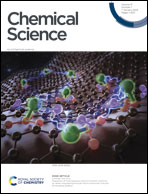The supersaturation perspective on the amyloid hypothesis
Abstract
Development of therapeutic interventions for Alzheimer's over the past three decades has been guided by the amyloid hypothesis, which puts Aβ deposition as the initiating event of a pathogenic cascade leading to dementia. In the current form, the amyloid hypothesis lacks a comprehensive framework that considers the complex nature of Aβ aggregation. The explanation of how Aβ deposition leads to downstream pathology, and how reducing Aβ plaque load via anti-amyloid therapy can lead to improvement in cognition remains insufficient. In this perspective we integrate the concept of Aβ supersaturation into the amyloid hypothesis, laying out a framework for the mechanistic understanding and therapeutic intervention of Alzheimer's disease. We discuss the important distinction between in vitro and in vivo patterns of Aβ aggregation, the impact of different aggregation stages on therapeutic strategies, and how future investigations could integrate this concept in order to produce a more thorough understanding and better treatment for Alzheimer's and other amyloid-related disorders.

- This article is part of the themed collections: 2024 Chemical Science Covers, 2023 Chemical Science Perspective & Review Collection and Amyloids and Protein Aggregation


 Please wait while we load your content...
Please wait while we load your content...